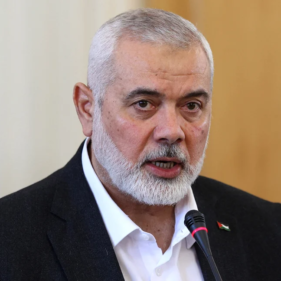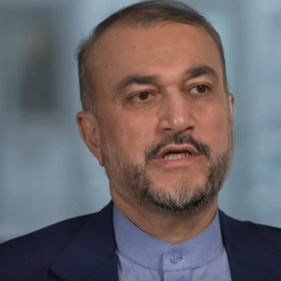The USA stays assured that the Group of Seven’s value cap on Russian oil is working to squeeze Moscow’s revenues and stabilize vitality markets regardless of a latest upturn in costs, a senior US Treasury official stated on Thursday.
In remarks ready for a London convention, appearing Assistant Secretary for Financial Coverage Eric Van Nostrand hailed the value cap as a profitable a part of the multilateral sanctions regime imposed on Russia over its invasion of Ukraine, and stated Washington and its companions have been working to thwart any evasion.
“Our method has struck on the coronary heart of the Kremlin’s most essential money cow. Earlier than the conflict, oil revenues constituted a couple of third of the whole Russian price range, however in 2023 that quantity has fallen to simply 25 %,” he stated within the ready remarks.
The G7, the European Union and Australia imposed the $60 per barrel cap final December on sea-borne exports of Russian crude in retaliation for Russia’s conflict on Ukraine. It bans Western firms from offering companies resembling transportation, insurance coverage and financing for the oil bought above the cap.
Van Nostrand stated Russian information confirmed federal authorities oil revenues have been practically 50 % decrease within the first half of 2023 than a 12 months earlier, and Russian oil was buying and selling at “a big low cost” to Brent oil.
Russian officers had additionally complained concerning the influence of the value cap, he stated, and the Kremlin has been pressured to contemplate elevating taxes on oil exporters to spice up revenues, which may weaken the long-term outlook for its oil business.
Van Nostrand stated the common reported value for Russian Urals had hovered round $60, the extent of the value cap, regardless of widespread expectations that the value would rise within the second half of 2023, and regardless of latest value will increase.
Russia’s Finance Ministry this week stated Urals crude oil mix traded at $64.37 per barrel on common in July, up from $55.28 per barrel in June.
World oil costs have marched above $80 per barrel in latest weeks after Saudi Arabia stated it will lower output in July, on high of wider cuts introduced by fellow international locations within the Opec+ manufacturing group introduced in April.
Earlier this 12 months, China pledged to take measures to revive financial development, which has additionally elevated predictions for increased costs in coming months, as has underinvestment by US oil producers earlier within the 12 months.
Van Nostrand stated the cap was persevering with to restrict Russian revenues, whereas giving “non-coalition consumers further leverage to barter costs down.”
Any investments the Russian authorities made into the so-called shadow fleet used to move oil, or into its personal insurance coverage firms so as to promote above the value cap, was draining funds accessible to assist the conflict in Ukraine, he stated.
Russian oil traded outdoors of the G7 nexus was nonetheless bought at a sizeable low cost to Brent oil, and transport capability restricted how a lot enterprise Russia may do outdoors the G7, he stated.
“Decrease-income international locations have been beneficiaries of this stability as they proceed to import discounted Russian oil that the G7 now not takes or profit from usually decrease world oil costs,” Van Nostrand stated.
Nonetheless, Van Nostrand stated Washington understood that markets may change quickly, and Russia would hold attempting to evade the value cap.
“We stay vigilant in monitoring Russian oil markets and the entire coalition stays targeted on implementing our sanctions,” he stated.









